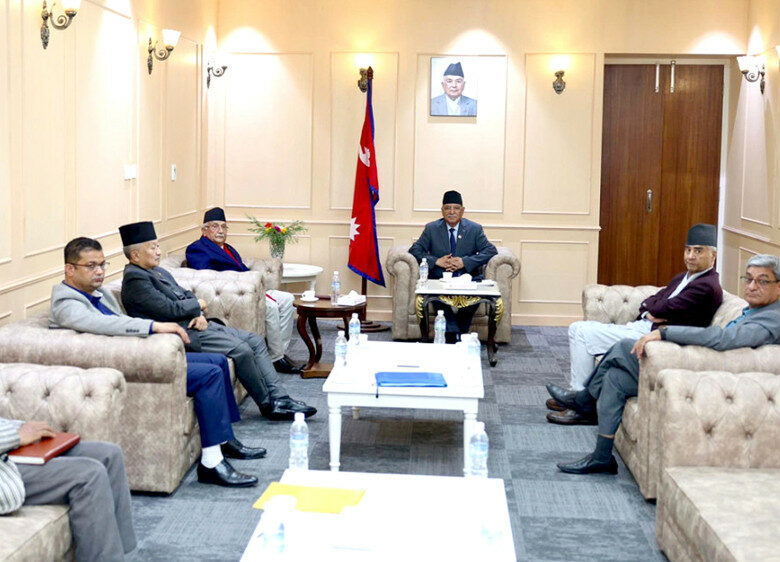Kathmandu June 30 : The parliamentary committee remains leaderless due to the failure to select the leadership during the party division. Even though the parliamentary committees were formed on the 15th of Baisakh, four months after the start of the parliament, the selection of the committee chairperson could not be made. Without the selection of leadership, oversight of the government’s functioning and discussion on bills cannot take place.
It is unclear which committee the ruling Congress, Maoist, United Socialist, and Janata Samajbadi parties will lead. Similarly, there is no agreement within the ruling party regarding which committee to give to the opposition alliance except for the Public Accounts Committee.
There are ten thematic committees and two joint committees in the House of Representatives. “As long as the ministers are not appointed, major parties cannot form committee divisions,” said Chitra Bahadur K.C., a senior member of the State Affairs Committee and the chairman of the National People’s Front. “The committee is like a mini parliament. Just as the major parties are running the parliament, they also want to run the committees accordingly.” He also mentioned that if the committees become active, they could oversee the government’s activities, but he expressed concerns about delaying the selection of leadership.
The first session of the House of Representatives concluded on the 15th of Baisakh, and the committee members were confirmed. On the same day, ten bills passed by the National Assembly were sent to the committees for discussion. Among the bills sent for discussion, there is no discussion on the review of individuals’ qualifications, truth verification, and reconciliation commission (third amendment) bill. Although the Law Committee formed a subcommittee to review the bills, there has been no discussion on amending some acts related to asset verification, prevention of corruption, and promotion of a business-friendly environment.
There are bills related to the scrutiny and evaluation of the International Relations and Tourism Committee, the Constitutional Council, the Commission to Investigate Abuse of Authority (third amendment), and the Corruption Prevention (first amendment) in the State Affairs Committee.
No discussions have started on any bills by the committee. After the introductory program between the committee members on Jestha 2, there hasn’t been another meeting. “We haven’t discussed any matters until the employees are not present. Meetings should only be held when necessary for the government and parliamentary secretariat,” said K.C. He further added, “The committee meeting does not require the presence of the Speaker. Other committees should also meet only when necessary for the government and secretariat.” The major parties accused the larger parties of trying to control the committee for their own benefit.
Similarly, there are bills on archival preservation in the International Relations and Tourism Committee, agriculture, cooperative, and natural resources in the Agriculture, Cooperative and Natural Resources Committee, and food hygiene and quality standards in the Publicity Committee. Although three meetings were scheduled for the International Committee, there is no agenda to move forward with the bills. “We are currently discussing contemporary issues,” said senior member Pashupati Shamsher JBR. “I have fulfilled my responsibilities.




COMMENTS